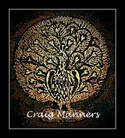 Postmodernism By Dr. Jeff Myers, Summit Ministries President "How is Postmodernism different than the Christian Worldview? The Postmodernist believes humans are nothing more than the sum total of the economic, legal, and personal relationships developed in a given society. Living within this order is ‘the essence of our life.” Our culture determines who we are. To Fredric Jameson, a Marxist professor who regularly comments on Postmodernism, not even space and time are “natural”; they are “projected afterimages” of structures of making and acquiring things. Postmodernism in sociology, then, can be described as social constructionism, the belief that human beings and society do not have essences that exist in and of themselves, but are constructed through many layers of conversations and experiences. When it comes to deconstructing society’s institutions, Postmodernists are particularly critical of religion, especially Roman Catholicism. In The Future of Religion, Richard Rorty describes his view as “anticlericalism” rather than “atheism.” He doesn’t object to “congregations of the faithful” but targets “ecclesiastical institutions” as dangerous to a society’s health. In his speeches, Rorty often quoted Denis Diderot: “Man will never be free until the last king is strangled with the entrails of the last priest.” Postmodernists, those of a Secularist bent anyway, also show their contempt for Christian concepts of love, sex, and marriage. The very concept of a father, mother, and children forms a “heterosexist norm” which enables society “to marginalize some sexual practices as ‘against nature’. So how should we rid ourselves of this “heterosexist norm?” By pushing the boundaries so far that people forget what used to be normal. This means talking about sex all the time, and the more deviant the better. It is unclear what Postmodernists think these actions will accomplish, if anything, in building a healthy society. This much is clear, though: Postmodernists, those who react so strongly against the idea that we have any direct access to reality, act as if they have direct access when it comes to try to break the “heterosexual norm” so that everything possible becomes permissible, everything permissible becomes desirable, and everything desirable becomes normal. If you don’t like it, don’t be surprised if Postmodernists accuse you of being a bigot who wants to mandate your intolerant point of view. 5 Posts From Summit this week: 1. The rise of the non-believing Millennial. 35% of Millennials identify as Atheist, Agnostic, or nothing in particular. 2. Sean McDowell discusses what a worldview is and the three components that make up a worldview. 3. Why monogamy and marriage don’t Interest Millennials. Three reasons experts believe Millennials are keeping the knot untied. 4. What is the root of the transgender debate? Ultimately, the transgender question is about more than just sex. It’s about what it means to be human. 5. Is Marxism present in America? The short answer is yes and here are three places you'll see it in America. How Christians Acting on Biblical Beliefs Secured the Basis for Women’s and Children’s Rights, Dr. Jeff Myers, excerpted from Understanding the Culture A Survey of Social Engagement Christianity has done more for women’s rights than any other movement in history. Christianity sprouted in the seedbed of the Roman Empire, whose soil was nourished with the blood of the innocent. To say that Rome was distinctly anti-woman is an understatement. Families typically kept all their… Read More → To subscribe to Summit weekly click here.
0 Comments
Your comment will be posted after it is approved.
Leave a Reply. |
Craig MannersWhile much of what is written in this Blog may currently appear to be counter-cultural, given our post-truth culture, it is in no way counter-human beings. I am always for people no matter what they think, do, or may have done in their past. Where I put forward ideas or debate against certain ideology, behaviour, ideas, movements, politics, I remain very much on the side of the human beings even though I may be opposed to their worldview, behaviour and politics. Such opposition is generally out of concern for the ultimate consequences of such behaviour or ideas, especially for children. |
- Africa
- Reflections by Craig Manners
-
Articles by Craig Manners
- While We Wait by Craig Manners
- Written on our Hearts by Craig Manners
- Cure for Death by Craig Manners
- Perfect Justice, Perfect Mercy. Only God Could do This. By Craig Manners
- Authority By Craig Manners
- Creation and Providence by Craig Manners
- Forgiveness by Craig Manners
- All Things for Good by Craig Manners
- A Complete Education by Craig Manners
- Humans. Moral beings or not?
- Soviet Era Mass Conversion Therapy Mind Control Set to Control the West by Craig Manners
- On the Road to Adelong by Craig Manners >
- What is Christianity all about? >
- Note Pad
- To be Frank!
- A Cultural Revolution
- Wanted: Men who Understand the Times
- Grieved by the Grievance Virus
Contact Craig Manners
Copyright Craig Manners © 2016 to 2019
